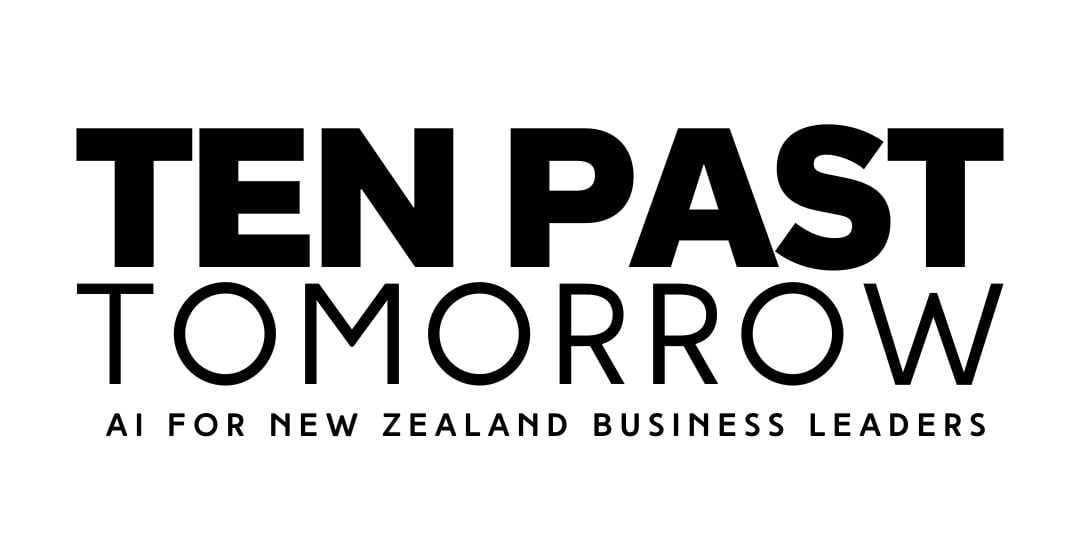Why Google is Disrupting Itself from Within
Google, clearly one of the most extraordinary companies in history, has been a dominant force in the world of AI since acquiring DeepMind in 2014. However, recent developments in the AI landscape have left some wondering if Google's time at the top is coming to an end.
In response to the rapidly evolving AI world, Google is developing a suite of new AI features for its existing search engine under the codename "Magi."
With over 160 employees dedicated to the redesign, Google is reacting quickly to the competitive pressure exerted by companies like OpenAI and Microsoft.
I recommend to New Zealand business leaders to keep a close eye on how these changes might impact your business and the world of search as we know it.
What's happening, exactly?
In short, Google is rebuilding its search engine to keep pace with the AI developments happening around it, and to address the growing threat posed by AI chatbots like Microsoft's Bing chatbot and OpenAI's ChatGPT, which could potentially replace traditional search engines like Google.
Google's Project Magi aims to provide a "more personalized search experience" and "anticipate" users' needs, much like ChatGPT.
As the New York Times reports, the project focuses on a conversational approach (yes, that still integrates ads, Google's primary revenue source).
The rise of AI chatbots poses a significant threat to Google's core business model: selling ads based on search queries. If users prefer asking chatbots (like ChatGPT) questions instead of using traditional search engines, that means fewer searches on Google and fewer visits to websites.
Despite the threat, right now Google remains the world's most popular search engine, with a 93% market share. Last year, advertising alone generated $224 billion for the company, accounting for 79% of its total revenue.
What are Google planning in response to these threats?
At its core, Google Magi will be a search engine with answers that you can engage with in back-and-forth “chat.”
Some of the potential additional features planned for Google Magi include abilities to answer software engineering questions and generate code snippets, a tool to allow users to search for music through chatbot conversation, and enabling users to complete transactions, such as purchasing shoes or booking flights, directly within the search engine.
In addition to these impressive features, Google is working on chatbots that can scan webpages to offer contextual information.
For instance, if you're browsing a restaurant's website for a dinner reservation, you could ask the chatbot for suggestions on complementary dishes or even inquire about any special promotions or events happening close to the retaurant on the night of your visit.
Other experimental features in development, such as "GIFI" and "Tivoli Tutor," would enable users to generate images (similar to Open AI’s DALL-E 2) using Google Image Search and learn new languages through chatbot interactions.
Google reportedly plans to announce Magi in May 2023, suggesting the project could make an appearance at I/O 2023.
Why is Google doing all of this?
First and foremost, Google is in defense mode, having seen the sands shift under their feet in recent months since Open AI’s release of ChatGPT.
For the first time in their history, they have been forced to consider a technology that can pose a genuine threat to their complete dominance of the search engine world.
That threat has seen Google hit the ‘red alert’ button.
While they are undoubtedly an AI superpower in their own right, and arguably have technology sitting in their research labs that is the equal of, or better than ChatGPT, they have been caught on their heels in recent months, and are now in catch-up mode.
In addition to the above, for the past several days, reports have been circulating online that Samsung is considering a potential shift from Google to Bing as their default search engine on all Samsung mobile devices.
Google’s deal with Samsung, worth an estimated $3 billion in annual revenue for Google, highlights the threat posed by AI chatbots. They also have a similar deal with Apple, reportedly worth $20 billion per year to Google.
Following the report about Samsung's potential move to replace Google with Microsoft's Bing as the default search engine on its devices, Alphabet's stock reportedly slid as much as 4% on Monday, resulting in an estimated loss of about $55 billion in market value.
How might Magi affect us in the business world?
I have put some thought into how Google embedding AI capabilities into its search engine might impact us as business leaders.
To “Google” something has become such an ubiquitous part of our daily lives, including within our business functions, that we must consider what changes to “Googling” might mean for us in an AI world.
At the moment, considering we’re so light on details about what exactly Magi will look like in the light of day, I’m only speculating here. But I do think it’s worth the time to crystal ball gaze about this scenario.
Here’s 6 ways I think we may have to adapt to Google’s Magi updates, as business leaders:
- Invest in AI skills and tools: To embrace the benefits of Google Magi (whatever they turn out to be) and stay competitive, it’ll be necessary to equip our teams with the necessary AI understanding, skills and tools.
- Update online presence: It’s highly likely that we’ll need to ensure our websites and online platforms integrate seamlessly with Google Magi. Just as has been the case in response to the many Google algorithm evolutions over the years, as business leaders I think it’s likely we’ll need to make changes to how we use Google search as a marketing tool once Magi touches down. As always, post-Magi updates, the objective will still be to use Google to provide exceptional user experience that keeps customers engaged.
- Monitor customer feedback: We’ll need to keep our wits about us, keep track of our online reputations and address any customer concerns promptly that may arise from Magi’s updates.
- Innovate and experiment: I foresee that those who use Google Magi's capabilities as a catalyst for developing new products and services that cater to changing customer needs will set those businesses apart from their competitors, quickly.
- Adapt your strategies: In all likelihood, we’ll need to revisit and update our business models and strategies (at the very least in our marketing departments) to remain relevant and successful in the new era of search coming our way.
- Balance AI with human judgment: While AI can bring numerous benefits, as with all AI tech that I discuss, it will be crucial to use Google responsibly and sustainably once Magi adds its AI muscle to the search engine. We must ensure that human ethics and judgment remain central to our business operations.
Contemplating Magi's role in the business sphere
The looming introduction of Google Magi signifies a significant shift in the world of search, presenting both challenges and opportunities for us all as New Zealand business leaders.
The phenomenon of "Googling" has become so deeply ingrained in our business and marketing practices that it is vital to explore the possible implications of AI-driven search on our operations.
Given the scarcity of concrete information about Magi's implementation, my analysis above remains speculative. However, by assessing the possible repercussions of Magi, we can better equip ourselves to navigate the dynamic landscape of an AI-powered search ecosystem that is coming our way.
Stay nimble, and stay curious about AI!



Got something to add? Chime in below...